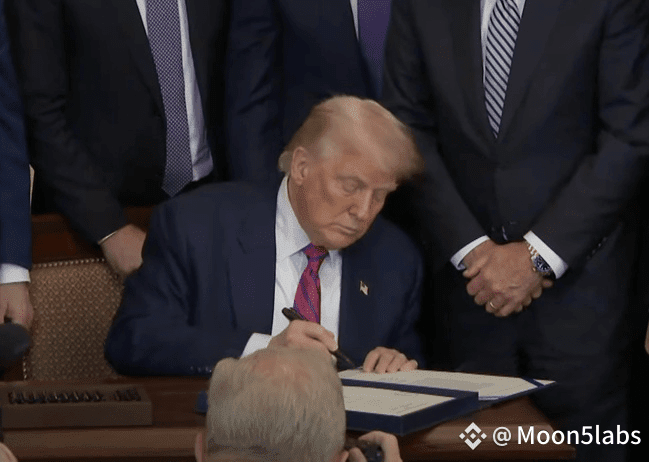The newly passed GENIUS Act, a U.S. legislative framework aimed at regulating stablecoins, was initially hailed as a major step toward embracing digital dollars. But beneath the surface lies a key provision that could severely weaken their appeal—especially for yield-seeking investors.
The act explicitly prohibits stablecoin issuers from offering interest to holders. In simple terms: no passive income from digital dollars. And this comes at a time when money market funds (MMFs) are surging forward with tokenization as their answer to the crypto revolution.

🔹 Yield-Free Stablecoins vs. Tokenized Funds With Returns
Experts argue that this ban ironically gives a significant edge to traditional players—especially money market funds. Thanks to tokenization, they now offer the flexibility and speed once unique to stablecoins, while maintaining regulatory oversight and offering yield.
“Tokenized MMFs today deliver DeFi-like convenience, but with added yield. That’s a strong value proposition for investors,” said Temujin Louie, CEO of cross-chain platform Wanchain.
While stablecoins still enjoy the benefit of being bearer assets, easily integrated into DeFi services without complex access controls, their lack of yield could be a critical disadvantage—especially as TradFi embraces blockchain innovation.

🔹 Banks Behind the Ban?
Industry experts point to the banking sector as a likely force behind the yield ban on stablecoins. After decades of offering negligible interest, banks now see yield-bearing digital assets as a threat to their business model.
This influence allegedly shaped the final form of the GENIUS Act, which appears to favor incumbent financial institutions.
Yet, the U.S. has already seen the first yield-bearing stablecoin—Figure Markets’ YLDS token—launched under securities regulations, offering 3.85% at inception. This suggests that yield in digital assets is possible, but likely to fall under stricter compliance requirements.

Summary
While the GENIUS Act paves the way for regulated stablecoins, it simultaneously blocks their ability to generate yield. This could undermine their role in the digital economy and shift momentum back to traditional institutions leveraging tokenized finance.
So the real question is: Is this smart regulation for financial stability—or veiled protectionism in favor of legacy banks?
#stablecoin , #Tokenization , #defi , #crypto , #Regulation
Stay one step ahead – follow our profile and stay informed about everything important in the world of cryptocurrencies!
Notice:
,,The information and views presented in this article are intended solely for educational purposes and should not be taken as investment advice in any situation. The content of these pages should not be regarded as financial, investment, or any other form of advice. We caution that investing in cryptocurrencies can be risky and may lead to financial losses.“


